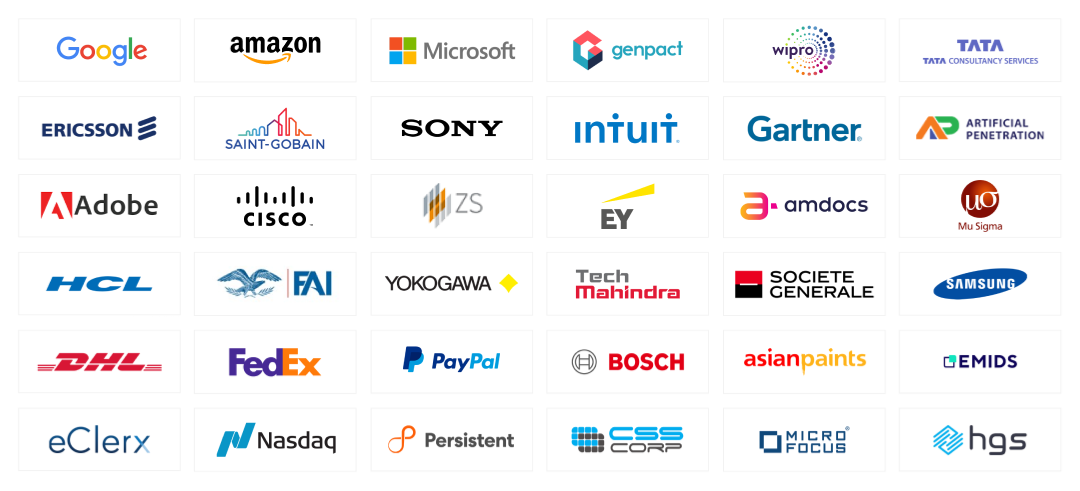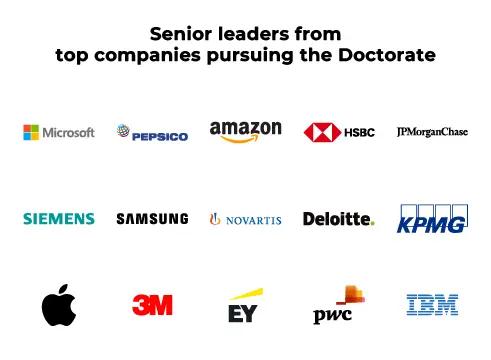Earn the most prestigious title in your career and develop leadership skills suited to today’s global business challenges. This online DBA program empowers you to innovate and lead at the highest levels.
Doctorate
Mar 31, 2025
36 Months




This course was designed to empower experienced professionals with advanced knowledge and research skills to enable them to drive innovation. Upon completion, learners will be awarded an DBA degree from Euro Asian, Geneva.
We are happy to help you 24/7
Get to know the Doctor of Business Administration course in-depth by downloading the course brochure

Doctor Degree in Business Administration



1. Molecular Biology
Study the organization of genes, including promoters, exons, introns, and regulatory elements. Understand mechanisms of transcriptional and post-transcriptional regulation. Explore epigenetic modifications, enhancers, silencers, and transcription factors. Gain insights into how gene expression is controlled in prokaryotes and eukaryotes, and its implications in development, disease, and biotechnological applications.
Study the molecular mechanisms of DNA replication, including initiation, elongation, and termination processes. Understand key enzymes like DNA polymerases and helicases. Explore various DNA repair pathways such as base excision, nucleotide excision, and mismatch repair. Emphasize the role of these processes in maintaining genomic stability and preventing genetic diseases.
Explore the mechanisms of RNA splicing, capping, and polyadenylation, and how these processes regulate gene expression. Study the roles of transcription factors in initiating and modulating transcription. Understand alternative splicing, mRNA stability, and non-coding RNAs, emphasizing their significance in development, disease, and biotechnological applications like gene regulation and synthetic biology.
Explore how genetic mutations, epigenetic changes, and molecular dysfunctions contribute to disease development. Study molecular pathways involved in cancer, neurodegenerative, metabolic, and infectious diseases. Understand gene-environment interactions, biomarker discovery, and therapeutic targets. Develop insights into designing molecular diagnostics and personalized medicine approaches for effective disease prediction, prevention, and treatment.
2. Genetic Engineering and Recombinant DNA Technology
Study the types and functions of cloning vectors such as plasmids, cosmids, and viral vectors. Learn gene cloning techniques including restriction digestion, ligation, transformation, and selection. Understand vector-host systems, screening of recombinants, and applications in transgenic research, functional genomics, and therapeutic development within biotechnology and genetic engineering frameworks.
Gain in-depth understanding of CRISPR-Cas mechanisms, guide RNA design, and target specificity. Learn techniques for gene knockout, insertion, and correction. Explore therapeutic, agricultural, and industrial applications. Evaluate off-target effects, delivery systems, and ethical considerations. Develop skills in genome editing tools and their integration into advanced genetic engineering research and innovation.
Study various gene delivery methods including viral and non-viral vectors, their mechanisms, and efficiency. Understand transformation techniques in prokaryotic and eukaryotic cells. Explore applications in gene therapy, transgenic organisms, and CRISPR delivery. Evaluate safety, specificity, and challenges in targeted gene transfer for research, therapeutics, and biotechnology innovation.
Explore how genetic engineering enhances crop yield, resistance, and nutritional value in agriculture. Understand medical applications such as gene therapy, vaccine development, and production of recombinant proteins. Study transgenic organisms, biofortification, and personalized medicine. Emphasize real-world innovations and ethical implications in applying biotechnology to health and food security.
3. Cell Biology and Cell Signaling
Study the molecular mechanisms controlling cell cycle phases, checkpoints, and regulatory proteins like cyclins and CDKs. Understand apoptosis pathways, including intrinsic and extrinsic signaling, and the role of caspases. Explore implications in cancer, development, and therapy. Emphasize techniques for analyzing cell proliferation, death, and gene expression in research contexts.
Study key signal transduction pathways like MAPK, PI3K-Akt, and JAK-STAT, focusing on their roles in gene regulation, cell growth, and apoptosis. Understand receptor-ligand interactions, second messengers, and cross-talk between pathways. Emphasize their implications in cancer, immune response, and therapeutic targeting in genetic and biotechnological applications.
Explore stem cell types, properties, and sources, including embryonic and adult stem cells. Understand mechanisms of self-renewal and differentiation, signaling pathways, and transcriptional regulation. Study stem cell applications in regenerative medicine, disease modeling, and gene therapy. Emphasize ethical considerations, stem cell culturing techniques, and advances in induced pluripotent stem cells (iPSCs).
Study how cells communicate during development through signaling pathways like Notch, Wnt, Hedgehog, and TGF-β. Understand the role of morphogens, receptor-ligand interactions, and transcriptional responses. Learn how cellular communication governs tissue patterning, organogenesis, and differentiation. Explore implications in developmental disorders, regenerative biology, and tissue engineering applications.
4. Genomics and Transcriptomics
Learn principles and platforms of NGS, including Illumina, PacBio, and Oxford Nanopore. Understand library preparation, sequencing workflows, and data quality control. Gain skills in data analysis, genome assembly, variant detection, and transcriptome profiling. Explore applications in genomics, epigenetics, and personalized medicine, emphasizing high-throughput capabilities and bioinformatics integration.
Learn the principles of genome annotation, including identification of genes, regulatory elements, and functional regions. Understand computational tools and databases used for annotation. Study comparative genomics to analyze evolutionary relationships, gene conservation, and genomic variation across species. Apply this knowledge to identify novel genes, understand functions, and explore genetic diversity.
Learn principles of transcriptome profiling to study gene expression patterns across conditions. Understand RNA-seq workflow, including library preparation, sequencing technologies, and data analysis. Gain skills in quality control, read alignment, and differential expression analysis. Apply transcriptomics to functional genomics, biomarker discovery, and regulatory network mapping in health and disease contexts.
Study genome-wide gene functions using high-throughput tools like RNA-seq and microarrays. Learn techniques to analyze gene expression, regulatory elements, and non-coding RNAs. Understand how gene networks control cellular processes and development. Apply this knowledge to identify biomarkers, understand disease mechanisms, and develop targeted therapeutic strategies in biotechnology and medicine.
5. Proteomics and Metabolomics
Understand protein folding, structural hierarchy (primary to quaternary), and techniques for structure determination like X-ray crystallography and NMR. Learn about post-translational modifications (PTMs) such as phosphorylation, glycosylation, and ubiquitination, and their roles in protein function, stability, and signaling. Explore implications of structural changes in disease and therapeutic protein design.
Learn the principles and types of mass spectrometry (MS) used in proteomics. Understand sample preparation, ionization techniques, and mass analyzers. Study peptide mass fingerprinting, tandem MS (MS/MS), and database searching for protein identification. Explore quantitative proteomics, post-translational modifications, and the application of MS in biomarker discovery and systems biology.
Understand key metabolic pathways like glycolysis, TCA cycle, and oxidative phosphorylation. Learn how to analyze metabolic fluxes using techniques like isotope labeling and flux balance analysis. Study pathway regulation, integration, and engineering for enhanced product yields. Apply knowledge to metabolic engineering, synthetic biology, and industrial biotechnology for optimized bioprocesses.
Learn to use bioinformatics tools for analyzing proteomic and metabolomic data, including protein identification, structure prediction, and pathway mapping. Understand databases like UniProt, KEGG, and MetaboAnalyst. Gain skills in data preprocessing, statistical analysis, and visualization. Apply these tools to interpret complex biological systems and support functional and comparative studies.
6. Immunotechnology
Learn the principles of antibody structure, engineering techniques for specificity and affinity enhancement, and methods for producing monoclonal antibodies using hybridoma and recombinant technologies. Study therapeutic and diagnostic applications, including antibody-drug conjugates and biosimilars. Understand challenges in antibody humanization, immunogenicity, and regulatory aspects in biomedical and pharmaceutical biotechnology.
Study vaccine types, design strategies, and production technologies including recombinant and mRNA-based vaccines. Understand immune response mechanisms, adjuvants, and delivery systems. Learn immunodiagnostic techniques like ELISA, lateral flow assays, and biosensors. Explore applications in infectious disease control, cancer immunotherapy, and emerging pathogen surveillance, along with regulatory and safety considerations.
Study the molecular mechanisms of immune cell signaling pathways, including T-cell and B-cell activation, cytokine signaling, and receptor-ligand interactions. Learn how immune responses are regulated and modulated in health and disease. Explore therapeutic strategies targeting immune signaling for autoimmune disorders, cancer immunotherapy, and vaccine development using biotechnological approaches.
Understand the genetic basis of immune system function and regulation, including HLA genes and antigen presentation. Study the role of gene polymorphisms in immune response variability. Explore mechanisms underlying autoimmune disorders, diagnostic markers, and therapeutic targets. Analyze gene-environment interactions and develop insights for immunogenetic research and personalized immunotherapies.
7. Bioinformatics and Computational Biology
Learn to navigate major biological databases like NCBI, EMBL, and UniProt. Understand sequence alignment algorithms, genome annotation, and comparative genomics. Gain skills in analyzing DNA, RNA, and protein sequences using tools like BLAST and Clustal. Apply bioinformatics approaches for gene identification, evolutionary studies, and functional prediction in genomic research.
Learn the principles of molecular modeling techniques to predict biomolecular structures and interactions. Understand molecular docking for drug-target binding studies, scoring functions, and virtual screening. Gain proficiency in computational tools to model protein-ligand interactions. Apply these skills in drug discovery, structural biology, and rational design of therapeutic molecules and enzymes.
Learn to integrate biological data to model complex systems, focusing on gene, protein, and metabolic networks. Study dynamic interactions, pathway mapping, and computational modeling. Understand tools for analyzing biological networks, feedback loops, and systems-level behavior. Apply systems biology in drug discovery, synthetic biology, and understanding disease mechanisms at a holistic level.
Learn how machine learning models analyze genomic data for pattern recognition, gene expression prediction, and variant classification. Understand applications in drug target identification, virtual screening, and biomarker discovery. Gain skills in data preprocessing, model training, and validation. Explore integration of multi-omics data and AI-driven personalized medicine approaches in biotechnology research.
8. Bioprocess Engineering and Industrial Biotechnology
Focus on microbial fermentation principles, types of bioreactors, scale-up processes, oxygen transfer, agitation, bioprocess optimization, sterile operations, downstream processing, control systems, and industrial applications. Emphasize metabolic engineering, strain improvement, and integration of omics data for enhanced bioproduction and reactor performance.
Focus on cell disruption methods, separation and purification techniques (filtration, centrifugation, chromatography), product concentration, polishing steps, scale-up strategies, cost-effectiveness, regulatory compliance, process validation, and recovery of proteins, enzymes, and metabolites. Emphasize integration with upstream processes and innovation in sustainable, high-yield recovery systems.
Focus on enzyme structure-function relationships, catalytic mechanisms, kinetics, immobilization techniques, industrial enzyme applications, metabolic engineering, directed evolution, and enzyme engineering. Understand biocatalyst design, optimization for specific reactions, and integration with synthetic biology. Study enzyme stability, specificity, and roles in pharmaceuticals, biofuels, and green chemistry for sustainable biotechnological innovations.
Study the development and use of GMOs in pharmaceuticals, agriculture, and biofuels. Focus on transgenic crops, bioremediation, and microbial GMOs for industrial enzyme production. Understand regulatory frameworks, biosafety, ethical concerns, and CRISPR applications. Explore real-world case studies highlighting innovation, scalability, and sustainability in industrial biotechnology using GMOs.
9. Ethics, Biosafety, and IPR (Intellectual Property Rights)
Learn key ethical principles in genetic research, including informed consent, privacy, and data sharing. Understand issues around genetic modification, gene therapy, and CRISPR. Explore regulatory frameworks, dual-use concerns, and societal impacts. Emphasize responsible research, public engagement, and the balance between scientific advancement and ethical responsibility in biotechnology and genetic engineering.
Understand the classification of biosafety levels (BSL-1 to BSL-4), containment practices, and facility requirements. Learn risk assessment principles, pathogen risk groups, and safe handling of GMOs. Emphasize regulatory guidelines, lab safety protocols, and emergency response. Apply knowledge to research involving recombinant DNA, infectious agents, and advanced genetic engineering techniques.
Learn the criteria for patentability of biotechnological inventions, including novelty, inventive step, and industrial applicability. Understand legal frameworks, ethical considerations, and international treaties like TRIPS. Study patent application processes, case laws, and challenges in patenting genes, GMOs, and biotechnological processes relevant to research, innovation, and commercialization in genetic engineering.
Study international and national regulatory policies governing biotechnology and genetic engineering, including GMO regulations, biosafety guidelines, ethical frameworks, and intellectual property rights. Understand organizations like WHO, FAO, and CBD, and frameworks such as Cartagena Protocol. Focus on compliance, risk assessment, public engagement, and global harmonization of biotechnological innovations.
10. Research Methodology and Scientific Communication
Learn principles of experimental design, including randomization, replication, and control. Understand statistical methods like ANOVA, regression, and hypothesis testing. Gain skills in data interpretation, error analysis, and software tools (e.g., R, SPSS). Focus on designing reproducible experiments and critically analyzing biological data for robust conclusions in biotechnology and genetic engineering.
For a PhD in Biotechnology and Genetic Engineering, learn to critically evaluate scientific literature, identify research gaps, synthesize findings, and assess study quality. Understand meta-analysis methodology, statistical tools, heterogeneity, and publication bias. Mastering these skills enables evidence-based conclusions, guiding innovative research and strengthening scientific arguments in your dissertation.
Learn ethical principles of scientific writing, including plagiarism avoidance, proper citation, authorship criteria, and data integrity. Understand peer-review processes, conflict of interest disclosure, and responsible publication practices. Emphasize transparency, reproducibility, and accountability in research. Uphold professional standards to ensure credibility and integrity in biotechnology and genetic engineering publications.
Learn to craft compelling research proposals, define clear objectives, justify significance, and align with funding priorities. Master budgeting, timelines, and ethical considerations. Develop persuasive writing, literature review, and hypothesis formulation skills. Understand funding agencies’ expectations to secure grants critical for advancing PhD research in biotechnology and genetic engineering.














Conduct original research to address a real-world business problem. Learn to formulate research questions, apply theoretical frameworks, and contribute to academic and professional knowledge. Every Learner will go through these following six simple steps to complete their Thesis with the help of a Professional Expert.
What Our Learners Have To Say About Us
Pursuing my Doctorate in Business Administration was more than just an academic pursuit—it was a transformational journey. The research support and global exposure helped me establish myself as a thought leader in strategic management.









Analyze how Amazon or Netflix navigated shifting market conditions through strategic foresight, innovative thinking, and effective change management. Examine key decisions, adaptations to technology and consumer behavior, and leadership in driving transformation. Highlight lessons in resilience, long-term vision, and innovation that enabled sustained competitive advantage.

Analyze Satya Nadella’s transformational leadership at Microsoft, focusing on how his leadership style influenced employee motivation and drove cultural change. Examine key initiatives, communication strategies, and leadership behaviors that reshaped the company’s vision, collaboration, and innovation. Evaluate outcomes through performance improvements, employee engagement, and organizational culture transformation.

Analyze how Apple maintained supply chain resilience during COVID-19, focusing on logistics optimization, risk management strategies, and supplier relationship management. Examine disruptions faced, Apple’s response, and lessons learned. Highlight how Apple adapted operations, diversified suppliers, and leveraged technology to ensure continuity and meet global demand during the pandemic.

In this case study, analyze Tesla’s approach to raising capital and taking financial risks. Evaluate its valuation methods, capital structure decisions, and strategic financial choices. Assess how these influenced growth, investor confidence, and market positioning, while considering implications for long-term sustainability and competitive advantage in the electric vehicle industry.

In this case study, analyze how Airbnb achieved rapid growth through disruptive innovation. Focus on its unique business model, how it scaled operations globally, and secured funding to fuel expansion. Examine key strategies, challenges faced, and the impact of innovation on the hospitality industry’s traditional dynamics.
![marketing]=](https://www.growthskale.com/wp-content/uploads/2025/04/marketing.webp)
Analyze how Coca-Cola tailors its branding and marketing strategies to different regions using consumer psychology insights and data-driven approaches. Examine specific regional campaigns, cultural adaptations, and how consumer behavior influences branding decisions. Highlight the effectiveness of personalized marketing and the role of data in shaping Coca-Cola’s global yet local brand presence.

Analyze the Volkswagen emissions scandal by examining the ethical lapses, failures in compliance, and the role of the board. Evaluate how decisions were made, who was responsible, and how stronger governance could have prevented it. Recommend strategies to enhance ethical decision-making, regulatory compliance, and board accountability in corporate settings.


Frequently Asked Questions

This is a doctoral-level program for professionals who want to lead through research and
innovation. It blends academic depth with real-world impact, helping you turn workplace
challenges into meaningful, research-driven solutions.
Yes, absolutely. It's built with your schedule in mind. You can pursue this PhD alongside your
job, with flexible study hours and a structure that respects your work-life balance.
This is a blended program, primarily conducted online. You'll learn through a mix of live virtual
sessions, recorded lectures, guided mentorship, and independent research. No campus visits
required—unless you choose to attend optional events.
You’ll learn from globally recognized faculty—experienced researchers, tenured professors, and
industry experts. They’ll not only teach you but guide your research journey with real insight and
personalized attention.
Instead of a traditional thesis, you’ll work on a Practicum Research Project. It’s based on a real
issue from your work or industry. With your advisor’s help, you’ll research it rigorously and may
even publish it, depending on your goals.
Not at all. This PhD is designed for professionals, not career academics. You’ll be supported
through every research step—from forming questions to analyzing data—with practical
guidance tailored to your experience level.
Most learners complete the program in about 2.5 to 3 years, depending on how much time you
dedicate. The flexible design means you can move at your own pace, balancing study with your
personal and professional life.
Yes. The degree is awarded by Euro Asian University in Estonia, a recognized institution within
the European Higher Education Area. It holds academic value across Europe, the U.S., and
beyond.
Publishing is not required but highly encouraged. If your work has practical or academic value,
your advisor can guide you in submitting it to journals or presenting it at conferences.
The cohort includes senior executives, consultants, educators, entrepreneurs, and mid-career
professionals. Everyone brings unique experiences, making for rich peer discussions and
networking opportunities.
Whether you want to teach, lead strategic transformation, consult, or start your own research
firm, this PhD helps position you as a subject matter expert and decision-maker in your domain.
The application is simple. Share your academic and professional background, express your
research interests, and have a short conversation with our admissions team. From there, we’ll
guide you through every step
Our advisors are available around the clock to answer questions and support your educational journey. Connect with us today to explore how upGrad can help you meet your career goals.

Office No. 1, G-184 1st floor, Sector 63, Gautam Buddha Nagar, Noida, PIN 201301

418 Broadway # 5572 Albany,
NY 12207

124-128 City Road London England EC1V
2NX 85600
Growthskale offers the most in-demand corporate Skills and latest cutting edge technologies used in the modern corporate world of today’s time. at Growthskale , We believe that quality education and Skill development are essential for working professionals and freshers who want to build a Successful career in Professional world.
GMZ GROWTH SKALE EDUCATION PRIVATE LIMITED Office No. 1, G-184 1st floor, Sector 63, Gautam Buddha Nagar, Noida, PIN 201301
©2025 Growthskale. All Rights Reserved.
